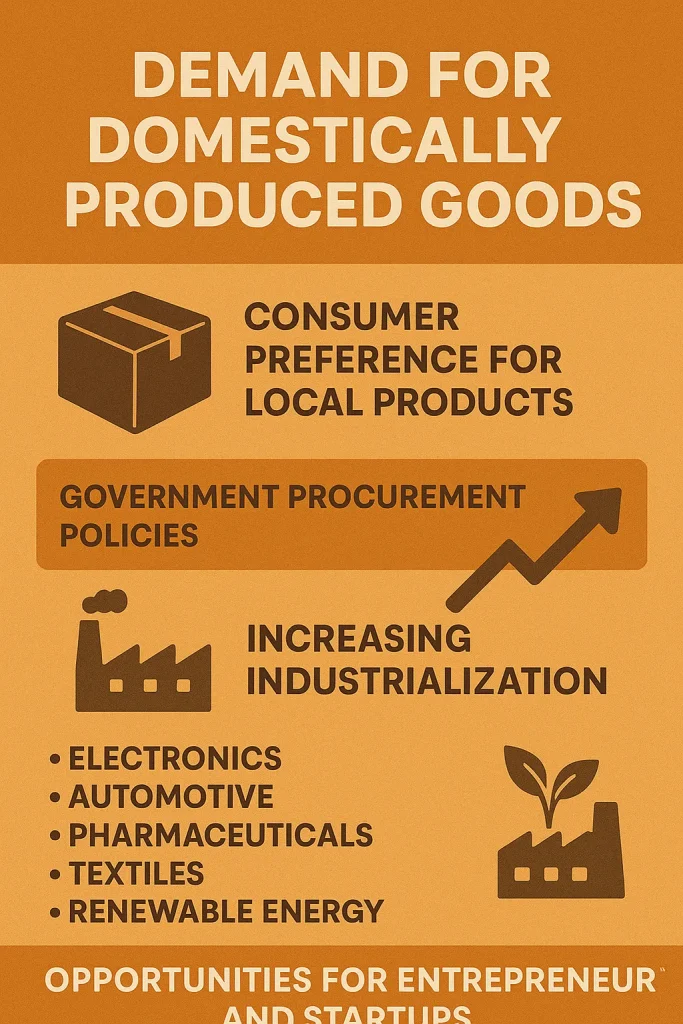India’s pharmaceutical and healthcare sector has always played a critical role, both domestically and globally. Known as the “pharmacy of the world,” the country is a leading supplier of affordable generic medicines and vaccines. However, the COVID-19 pandemic highlighted vulnerabilities in the supply chain, particularly the dependence on imported
Active Pharmaceutical Ingredients (APIs) and certain categories of medical devices. To address this, the Government of India launched a comprehensive package aimed at boosting domestic production of APIs and medical devices. This initiative not only supports self-reliance under the Atmanirbhar Bharat vision but also creates immense opportunities for entrepreneurs and startups to participate in a sector that is vital for public health and economic growth.
Understanding APIs and Medical Devices
Active Pharmaceutical Ingredients are the biologically active components in drugs that produce the intended therapeutic effects. APIs are essential to medicine manufacturing, yet India has historically relied heavily on imports, particularly from China. Medical devices, on the other hand, range from simple equipment like syringes and thermometers to advanced diagnostic machines, implants, and surgical instruments.
With rising healthcare demand, both APIs and medical devices represent crucial pillars of the pharmaceutical and healthcare industry.
Why the Government Package is Necessary
India’s dependence on imports for critical APIs and medical devices has been a longstanding concern. During the pandemic, global supply disruptions made it clear that such reliance could jeopardize healthcare security. Additionally, rising healthcare costs and the need for innovation in diagnostics and treatment have created demand for localized, affordable solutions. By strengthening domestic manufacturing capabilities, the government aims to reduce import dependency, build resilience, and encourage innovation-driven growth.
For more information, check out our project report
Key Features of the Government Initiative
The government’s package focuses on creating a robust ecosystem for API and medical device manufacturing. This includes financial incentives through the Production Linked Incentive (PLI) scheme, investment in bulk drug and medical device parks, and policy reforms that simplify regulatory approvals. Special emphasis has been placed on developing high-value APIs that are currently imported, as well as promoting indigenous manufacturing of technologically advanced medical devices. These measures aim to enhance competitiveness, support startups, and make India a global hub for affordable and reliable healthcare products.
Market Potential and Growth Forecast

The API and medical device sectors are among the fastest-growing industries in India. The global API market is projected to cross hundreds of billions of dollars in the coming years, with India poised to be a major player due to its skilled workforce, lower production costs, and strong pharmaceutical base.
Similarly, the Indian medical device market, currently valued in billions, is expected to grow at a double-digit compound annual growth rate (CAGR), fueled by rising healthcare infrastructure, increased insurance penetration, and growing medical tourism. The government package enhances this growth potential by reducing barriers and providing incentives for local production.
Related articles:- A Beginner’s Guide to Startup Services in Himachal Pradesh
Opportunities for Entrepreneurs and Startups
For entrepreneurs, this policy shift opens doors to enter a high-demand sector with long-term sustainability. Startups can focus on developing niche APIs, low-cost medical devices, and innovative diagnostic solutions. Collaborations with research institutions and global companies can further strengthen competitiveness. The rise of digital healthcare and telemedicine also creates new avenues for integrating devices with technology, offering innovative solutions to meet modern healthcare challenges. With rising demand and supportive policies, new ventures can capitalize on export opportunities as well.
Challenges to Overcome
Despite strong government backing, there are challenges in scaling up API and medical device production. These include high initial investments in infrastructure, the need for advanced technology and skilled manpower, and competition from established global players. Compliance with international quality standards and regulatory frameworks is another hurdle that startups must address. However, with careful planning, innovation, and government support, these challenges can be turned into opportunities.
To explore more, check our books
Government Support Beyond Incentives
Beyond financial incentives, the government is also focusing on improving infrastructure and creating an ecosystem conducive to manufacturing. Bulk drug parks and medical device parks provide shared facilities, reduce production costs, and encourage collaboration among businesses. Simplified regulatory processes, R&D support, and skill development programs ensure that entrepreneurs can focus more on innovation and less on bureaucratic hurdles. This integrated approach makes the package more than just a financial push—it builds a complete ecosystem for long-term sustainability.
Long-Term Impact on Healthcare and Economy
The success of this package will have far-reaching benefits for both healthcare and the economy. For healthcare, it ensures uninterrupted access to essential medicines and devices, improved affordability, and enhanced quality of care. For the economy, it boosts exports, generates employment, and positions India as a leader in global healthcare supply chains. The ripple effect also supports ancillary industries like packaging, logistics, and raw material supply, creating a broader economic impact.
Role of NPCS in Supporting New Ventures
Niir Project Consultancy Services (NPCS) plays a vital role in helping entrepreneurs and startups enter this promising sector. NPCS prepares Market Survey cum Detailed Techno-Economic Feasibility Reports that provide critical insights into the industry. Their reports cover everything from manufacturing processes and raw materials to plant layout and financials, giving entrepreneurs a clear roadmap for success. By offering feasibility assessments, NPCS helps businesses reduce risks and confidently set up new ventures in the API and medical device manufacturing industry.
Future Outlook
With rising healthcare demand, government support, and global opportunities, the future of API and medical device manufacturing in India looks exceptionally bright. Startups and established companies alike can benefit from the momentum generated by this package. Innovation, quality, and efficiency will be the key differentiators as India works toward reducing import dependency and becoming a reliable global supplier of healthcare solutions.
Conclusion
The government package to boost API and medical device production is more than a policy—it is a transformative step toward healthcare security, economic growth, and self-reliance. For entrepreneurs and startups, this presents an unprecedented opportunity to build sustainable businesses in a sector that directly impacts lives.
By leveraging market trends, embracing innovation, and seeking expert support from consultancy services like NPCS, businesses can thrive in this growing ecosystem. The path forward is one of resilience, opportunity, and global leadership for India’s healthcare industry.
Discover the best business ideas for yourself by using our startup selector tools
Frequently Asked Questions
Q1. Why did the government announce a package for API and medical devices?
To reduce import dependency and strengthen India’s self-reliance in healthcare manufacturing.
Q2. What is the Production Linked Incentive (PLI) scheme?
PLI provides financial incentives to manufacturers based on incremental sales of domestic products.
Q3. How does this package benefit entrepreneurs?
It offers funding support, tax incentives, and easier compliance for setting up new facilities.
Q4. What is the global impact of India’s API manufacturing push?
It positions India as a key global supplier, reducing reliance on imports from countries like China.
Q5. Are startups eligible to benefit from the package?
Yes, startups and SMEs can apply if they meet the eligibility criteria under government guidelines.








